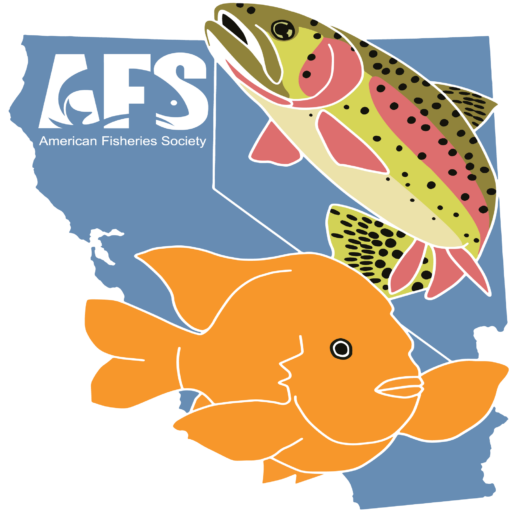This August, Past-President Joe Merz and I traveled to “Cigar City” and braved the humidity to attend the 147th Annual Meeting of the American Fisheries Society in Tampa, Florida. National meetings are always a great opportunity to connect with colleagues and hear the latest on the research and work being done around the country. From panel discussions on the Lionfish invasion to the trophy bass fisheries, discussions on how to increase diversity and be more inclusive in our profession to presentations on genetics, there was something for everyone. With more than 1,400 presentations, there was always a chance to learn something new. There were fun networking events, and the grand social took us to the Florida Aquarium where we able to see the Tampa Bay rays. Of course, we also had to make time to catch the partial solar eclipse.
During the week, there were several chances for unit leaders to connect with AFS headquarters staff. Sunday morning, we attended the “Leading at Levels of AFS” and heard from the Executive Director Doug Austen and the 5 society officers. We also got a crash course on Robert’s Rules of Order, which comes in handy when we conduct chapter business. Another event was the Unit Leader Workshop, which allowed officers from the divisions and chapters to share ideas on fundraising, student involvement, policy, and reporting. It was also a chance to provide feedback to the AFS officers and staff including Deputy Executive Director, Dan Cassidy. The meeting also provided an opportunity to connect with headquarters and discuss the 2019 National Meeting in Reno, Nevada. Everyone is excited about this meeting and it will be a new experience to co-host the annual conference with The Wildlife Society.
One of the technical sessions that I attended was focused on scientific communication. One of the presentations highlighted Randy Olson’s technique of storytelling and his book “Don’t be Such a Scientist, Talking Substance in the Age of Style”. Randy’s approach includes the “And, But, Therefore” template which has been presented as an effective approach in storytelling and we should work to integrate this technique into our communications. This approach is something I’m attempting to integrate and is a way to translate our work to the fellow scientists and the public, but changing your communication style is not always easy. Therefore, I challenge all of us to attempt to use this approach and see if this improves our effectiveness. I have yet to read Randy’s book, but I also think this would be a great reference and we should all check it out. This session was motivating and reminded me that there are always ways to improve. It also got me excited about our upcoming meeting, which will focus on communicating with our communities.
Overall, it was a wonderful week in the South and the meeting organizers did a great job. A lot of work goes into planning meetings and the Florida Chapter was not only welcoming but they did a fantastic job. I look forward to seeing what Atlantic City will have to offer in 2018 and I’m excited for another opportunity to connect with old friends and make some new ones.
Lastly, it is hard not to mention the recent natural disasters across our nation. These fires and storms are leaving many wondering if events of these magnitudes are the new norm. Although a majority of the events occurred outside of California and Nevada, we certainly had a handful of occurrences that hit closer to home. The fisheries world is small and unfortunately the likelihood that some of our colleagues have been affected by these recent fires is high. My thoughts go out to anyone that has been directly affected or has friends or family that is impacted by these recent events.

